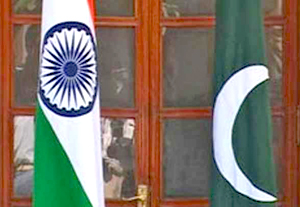
New Delhi, April 13: Improving the economic ties between the two nations, India on Friday said it will allow FDI from Pakistan paving the way for industries from the neighbouring country to set up businesses in the growing Indian market.
"India has taken in-principle decision as part of trade normalisation process to allow foreign direct investment from Pakistan...," commerce and industry minister Anand Sharma said after a meeting with his Pakistani counter part Makhdoom Amin Fahim here.
Sharma said, "procedural requirements (for FDI from Pakistan) are underway. It will notified soon."
Besides, talks are underway to allow banks from both the countries to open branches in each other's territory, he said, adding, "RBI and State Bank of Pakistan are in favour of opening branches..."
Fahim said, "there has been progress in allowing banking services from both sides. In-principle we have agreed."
At present, India and Pakistan are engaged only in trade of goods, which has recently been liberalised.
Several Pakistani industries and banks are keen on setting up business in India, which is possible only when a policy decision on allowing cross-border FDI is taken. Sharma also said that India-Pakistan Business Council will be set up soon, to be co-chaired by both the countries.
On multiple entry business visas, he said, "There will be a formal signing of agreement soon. It will be for one year initially."





Comments
Add new comment